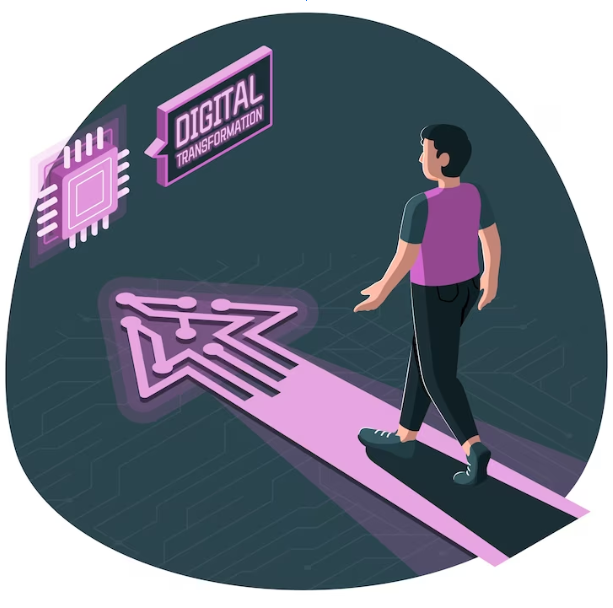Introduction:
In the fast-paced realm of technology entrepreneurship, where innovation is the heartbeat and change is constant, one skill reigns supreme—continuous learning. This blog post delves into the pivotal role of continuous learning as the most critical skill for every tech entrepreneur. We explore why this skill is paramount, how it fosters success in a rapidly evolving landscape, and the multifaceted dimensions it adds to entrepreneurial journeys.
The Velocity of Technological Change:
1. Rapid Technological Advancements:
The tech industry is synonymous with constant change. From breakthroughs in artificial intelligence to paradigm-shifting developments in blockchain, staying abreast of the latest technologies is not just an advantage but a necessity.
2. Short Lifecycle of Skills:
The half-life of talents is getting shorter in the tech industry. What seemed innovative one day could not be so the next. Tech entrepreneurs are guaranteed to stay at the forefront of innovation through ongoing learning.
3. Adapting to Emerging Technologies:
A key facet of continuous learning is the ability to adapt to emerging technologies. Whether it’s quantum computing, edge computing, or the Internet of Things (IoT), tech entrepreneurs must embrace new tools and methodologies to stay competitive.
Embracing the Growth Mindset:

1. Adopting a Growth Mindset:
The adoption of a growth mindset is the cornerstone of lifelong learning. Tech entrepreneurs who see challenges as opportunities to learn and believe in their capacity to develop new skills are better equipped to navigate the uncertainties of the industry.
2. Resilience in the Face of Failure:
Continuous learners understand that failure is not a setback but a stepping stone to success. Embracing failure with resilience and learning from it is a hallmark of a tech entrepreneur committed to personal and professional growth.
3. Entrepreneurial Learning Loops:
Continuous learning forms the core of entrepreneurial learning loops. By constantly iterating, adapting, and learning from both successes and failures, entrepreneurs create a feedback mechanism that propels them toward sustainable growth.
Staying Relevant in a Competitive Landscape:

1. Adapting to Market Trends:
Markets evolve, and so do consumer needs. Continuous learning enables tech entrepreneurs to adapt their products or services in response to emerging trends, ensuring that they remain relevant and competitive.
2. Agile Business Strategies:
The ability to pivot and adjust business strategies is vital in the tech industry. Continuous learners are more likely to embrace agile methodologies, allowing them to respond swiftly to changing market dynamics.
3. Customer-Centric Innovation:
Continuous learning extends beyond technology to understanding customer needs. Entrepreneurs who continuously seek insights into evolving customer preferences can drive customer-centric innovation, gaining a competitive edge.
Building a Versatile Skill Set:

1. T-Shaped Skill Development:
Beyond deep expertise in a specific area, tech entrepreneurs benefit from a T-shaped skill set. Continuous learning allows for the development of both broad and deep skills, creating versatile entrepreneurs capable of wearing multiple hats.
2. Cross-Disciplinary Innovation:
The intersection of different fields often breeds innovation. Tech entrepreneurs who continuously learn beyond their immediate domain can draw insights from diverse disciplines, fostering cross-disciplinary innovation.
3. Leadership Agility:
Continuous learning enhances leadership agility. Tech entrepreneurs who can pivot between roles and responsibilities, from technical intricacies to strategic decision-making, can lead their teams with flexibility and vision.
Navigating Ethical and Social Implications:

1. Ethical Considerations in Tech:
The tech industry grapples with ethical dilemmas, from data privacy concerns to the societal impact of AI. Continuous learning includes staying informed about the ethical implications of technology and making responsible decisions.
2. Social Responsibility:
Tech entrepreneurs are increasingly held accountable for the social consequences of their innovations. Continuous learners are better positioned to integrate social responsibility into their business models and contribute to positive societal outcomes.
3. Regulatory Awareness:
Staying informed about evolving regulations is crucial. Continuous learners are proactive in understanding and complying with changing legal landscapes, mitigating risks associated with non-compliance.
Fostering a Culture of Learning:

1. Leadership by Example:
Tech entrepreneurs who prioritize continuous learning set an example for their teams. Leadership by example fosters a culture of learning within the organization, creating a dynamic and innovative work environment.
2. Investing in Employee Development:
Beyond personal growth, continuous learning extends to the entire team. Tech entrepreneurs who invest in the professional development of their employees cultivate a skilled and adaptable workforce.
3. Collaborative Learning Environments:
Continuous learning thrives in collaborative environments. Tech entrepreneurs foster a culture where team members share knowledge, collaborate on projects, and collectively contribute to the learning ecosystem.
Conclusion:
In the ever-evolving landscape of technology entrepreneurship, the most important skill is not a specific coding language or technical expertise—it’s the ability to learn continuously. A commitment to ongoing learning empowers tech entrepreneurs to navigate change, stay relevant, and lead with resilience and innovation.
As the tech industry continues to redefine the future, the capacity to embrace learning as a lifelong journey becomes the linchpin for success. Continuous learners are not just entrepreneurs; they are architects of the future, shaping a world where adaptability and innovation are the cornerstones of progress. In a realm where the only constant is change, continuous learning emerges as the North Star guiding tech entrepreneurs toward new horizons of success.





